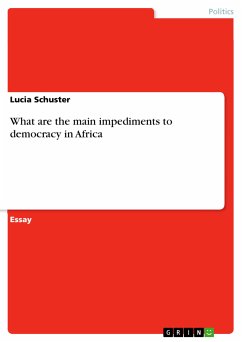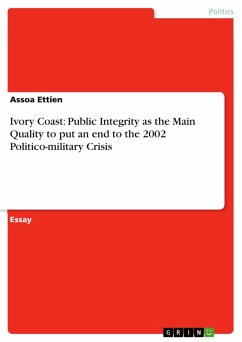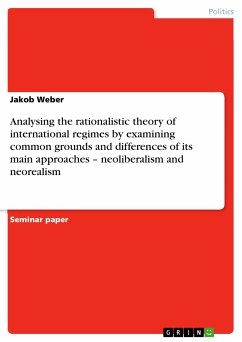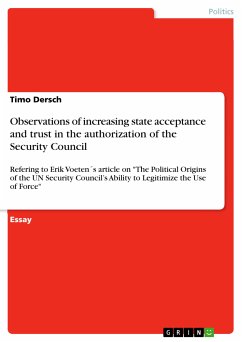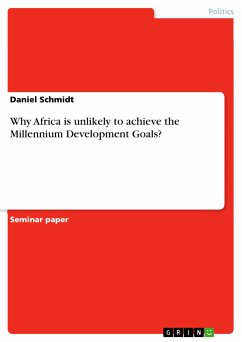Essay from the year 2002 in the subject Politics - International Politics - Region: Africa, grade: 2,0 (B), University of Southampton (Department of Politics), course: Africa - Culture and Political Systems, language: English, abstract: Democracy in Africa has been shaped by the colonial powers that ran Africa until the period of decolonisation that began in the 1960’s. Thereafter Africa has attempted to follow the European model of democratic governance. However, whilst African democracy has shown some improvement, it is still having legitimacy problems and African states are characterised by corruption and autocracy. This report will highlight the impediments to the furthering of democracy in Africa and what can be done to increase the role of democracy in African States. There will be a focus on the role played by colonialism and the ethnic divides that exist in Africa. We will then examine how corruption and the economic problems of African States are restraining democratic legitimacy and the effect these problems have on human rights. Lastly, we will concentrate on the role that other state and non-state actors have on democracy in Africa. However, before looking at these aspects of the debate, it is important to understand democracy and its basis. Democracy is not a single approach but rather a commitment to certain institutions such as the rule of law, civil society and political accountability through free and fair elections by an electorate based on universal suffrage. It also includes (to a varying degree) freedom of speech, the development of a civic culture and the acceptance of a social contract.

